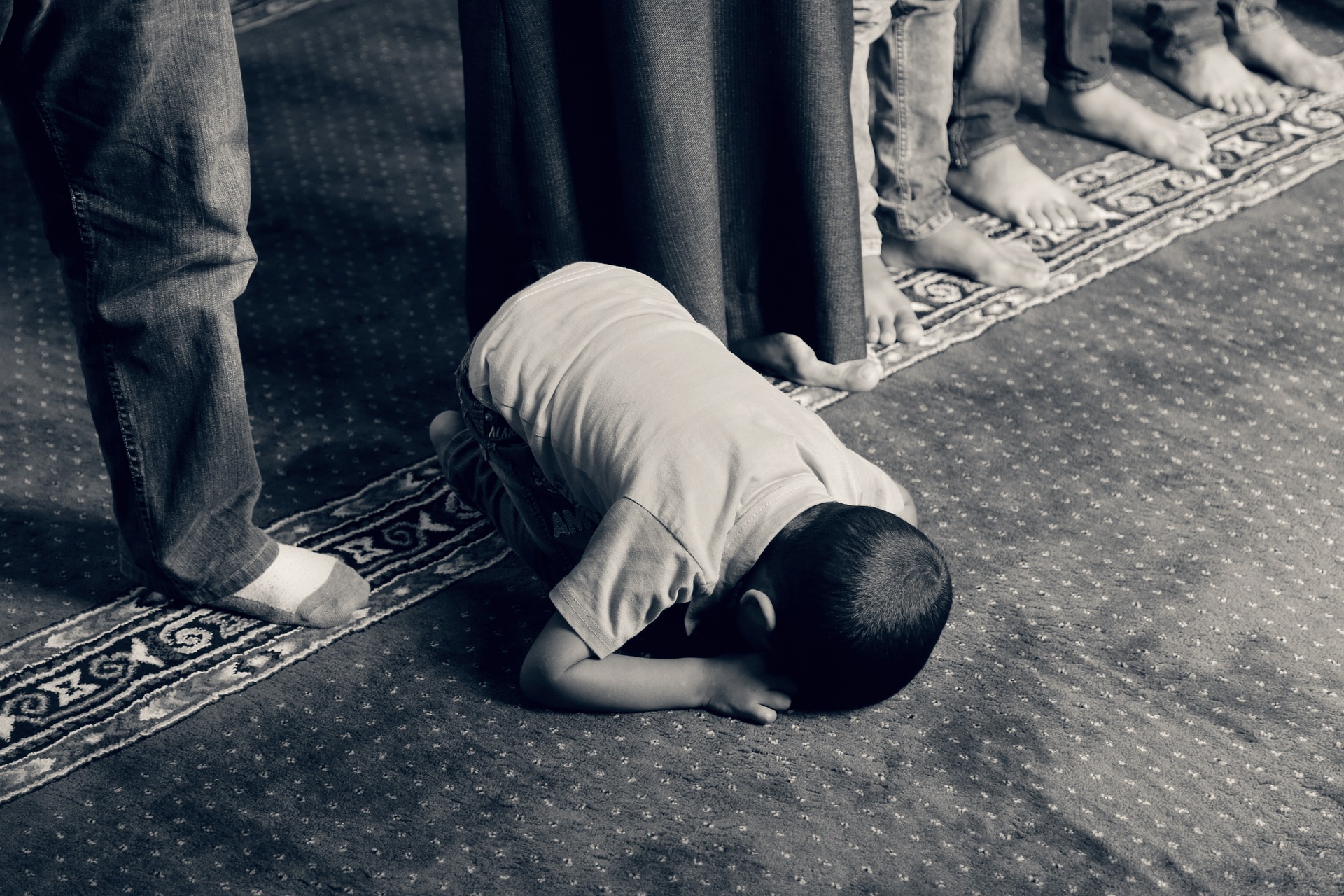As a parent, you want your child to grow up with a strong foundation of values and morals. One way to achieve this is by teaching them the Quran, the holy book of Islam. The Quran is not just a religious text, but it also guides how to live a good life and build strong relationships with others. In this post, we will explore why teaching the Quran to children is important and offer tips on how to make it an enjoyable and meaningful experience for them.

The Quran is a source of guidance and wisdom that can help shape the character of children. By teaching them the Quran, parents can instill values and morals that will serve as the foundation for their beliefs and actions throughout their lives.
One of the key values emphasized in the Quran is the importance of treating others with kindness and respect. The Quran encourages people to be mindful of their words and actions and to treat others with fairness and compassion. This includes being patient, forgiving, and understanding, even in the face of adversity.
The Quran also emphasizes the importance of doing good deeds and being honest and just. Children can learn from the examples set by the Prophet Muhammad (peace be upon Him) and other figures mentioned in the Quran, and strive to live their lives similarly.
Overall, by teaching children the Quran, parents can help them develop a strong moral compass that will guide them as they navigate the challenges of growing up and beyond. The Quran provides a roadmap for living a good life and can be a valuable resource for children as they strive to make positive choices and build strong relationships with others.
One of the benefits of teaching the Quran to children is that it can foster a love for learning. Children are naturally curious and eager to learn, and the Quran can provide a foundation for their continued growth and exploration.
By teaching children, the Quran, parents can encourage them to seek knowledge and understanding, both about their faith and the world around them. The Quran contains a wealth of information and wisdom, and by studying it, children can develop a love for learning and a desire to continue expanding their knowledge.
Additionally, teaching the Quran can help children develop critical thinking skills, as they learn to analyze and interpret the text. They can learn to ask questions and seek answers, which can lead to a lifelong love of learning and exploration.
Incorporating interactive activities and using technology can also make the learning experience more engaging and enjoyable for children. By making the lessons fun and interactive, parents can help children develop a love for learning that will serve them well in all aspects of their lives.
Overall, fostering a love for learning in children is a valuable gift that can have a lasting impact on their lives. By teaching them the Quran, parents can help them develop this love and set the stage for a lifetime of growth and exploration.
Teaching the Quran to children is a powerful way to strengthen their faith and deepen their connection to Islam. The Quran is the central religious text of Islam, and studying it can provide children with a solid foundation for their religious beliefs and practices.
By learning about the teachings and principles of Islam, children can gain a better understanding of their faith and the reasons behind its beliefs and practices. This can help to foster a deeper commitment to Islam and increase their devotion to their religion.
In addition, studying the Quran can help children develop a sense of community and belonging. They can learn about the shared beliefs and values of Muslims around the world, and feel connected to a larger, global community. This can be especially important for children growing up in non-Muslim environments, as it can provide them with a sense of identity and belonging.
Furthermore, teaching the Quran to children can also help to foster a sense of spiritual growth and development. Children can learn about the concept of God and the purpose of their lives, and be guided towards making positive choices and leading fulfilling lives.
Overall, by teaching the Quran to children, parents can help to strengthen their faith, deepen their connection to Islam, and set them on a path of spiritual growth and development. This can be a valuable gift that will serve them throughout their lives, and help them to lead fulfilling, meaningful lives.
Teaching the Quran to children can also enhance their Arabic language skills, as the Quran is written in classical Arabic. Learning to read and understand the Quran can help children develop proficiency in this important language and improve their overall language skills.
Arabic is not just a language, but also the language of the Quran and Islam. By studying the Quran in its original language, children can gain a deeper understanding of the text and its teachings. Additionally, reading and reciting the Quran can help improve their pronunciation, vocabulary, and grammar skills in Arabic.
Furthermore, learning Arabic can help children connect with the rich history and culture of the Arab world and the wider Muslim community. They can learn about the traditions and customs of Arabic-speaking countries and develop a greater appreciation for the diversity and richness of this important part of the world.
Overall, teaching the Quran to children can be a valuable tool for enhancing their Arabic language skills, and providing them with a foundation for continued growth and development in this important language. Whether they are interested in pursuing a career in Arabic or simply want to gain a deeper appreciation for this important part of the world, learning the Quran can be a valuable investment in their future.
Teaching the Quran to children can also promote a sense of community and bring families and communities together. By studying the Quran together, children and their families can learn about the shared beliefs and values of Islam and feel connected to a larger, global community.
Additionally, many communities offer Quran classes for children, which can provide a supportive and engaging learning environment. Children can form relationships with their peers and instructors, and learn from one another in a group setting. This can help them develop a sense of belonging and connectedness and can foster positive social and emotional development.
Furthermore, studying the Quran can provide families with a shared experience and common goal, and can help to bring them closer together. It can provide a shared source of guidance and wisdom and can help to foster open communication and understanding within families.
Overall, teaching the Quran to children can promote a sense of community and bring families and communities together. By studying the Quran, children can learn about the shared beliefs and values of Islam, form meaningful relationships with others, and develop a sense of belonging and connectedness. This can be a valuable experience that can help children grow and thrive in all aspects of their lives.

Start early: It is never too early to start teaching children the Quran. The earlier you start, the easier it will be for them to understand and retain the information.
Make it interactive: Children learn best when they are engaged and having fun. Try to make the lessons interactive by asking questions, using props, and incorporating games.
Use visual aids: Children are naturally drawn to visual aids, such as pictures and videos. Use visual aids to help explain complex concepts and keep children engaged.
Make it a family activity: Involve the whole family in the process of learning the Quran. Encourage siblings to study together and participate in family Quranic events.
Encourage regular practice: Regular practice is key to retaining information and building fluency. Encourage children to read and recite verses from the Quran regularly.
Use technology: Technology can be a great tool for teaching the Quran to children. Many apps and websites offer Quranic lessons and activities for children.
Find a good teacher: A good teacher can make all the difference in the quality of the lessons. Look for a qualified and experienced teacher who can make the lessons enjoyable and meaningful for your child. Al-dirassa institute provides the best online Quran tutors.
To know more, discover 7 reasons why to learn the Quran online
Teaching the Quran to children is an important investment in their future. It can help instill values and morals, foster a love for learning, strengthen their faith, enhance their Arabic language skills, and promote a sense of community. By following the tips outlined in this post, parents can make the experience of learning the
Book your free trial lesson
In addition to the free Arabic courses, we offer you to begin your journey to fluency in Arabic right now for free with a graduated Egyptian teacher.

Al-dirassa Institute offers you a gift to help you begin your journey to being fluent in Arabic and learning the Quran.

Al-dirassa Institute offers you a gift to help you begin your journey to being fluent in Arabic and learning the Quran.